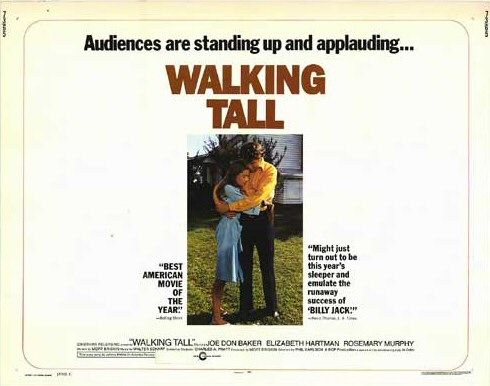Jesse Crowder’s back!
You may remember Jesse Crowder as the super cool and unflappable private detective from Death Journey. Jesse was a Los Angeles cop but now he works independently. There’s literally nothing that Jesse can’t do. Ride a horse? Ride a motorcycle? Slow motion kung fu? Jesse can do it all and he usually do it without bothering to button up his shirt. Jesse is such a badass that he can kill more people in the time it takes for him to light a cigar than most people will kill in their entire lifetime.
The 1976 film No Way Back is the second Jesse Crowder film. Once again, Fred Williamson both directs and stars as Jesse. Williamson is in almost every scene of the film and when he’s not killing bad guys or having sex or just posing with his shirt off, he’s listening to people talk about what a badass he is. In short, No Way Back is a vanity project but it’s a vanity project with a sense of humor. Watching the film, you get the feeling that Williamson knows that No Way Back is kind of silly but, at the same time, he’s having fun and he wants everyone watching to have fun too.
No Way Back‘s plot involves a missing man and a lot of money. Henry Pickens (Charles Woolf) worked at a bank but, one day, he grabbed a briefcase full of money, jumped in a car driven by his girlfriend (Tracy Reed), and disappeared. Everyone was shocked but you know who was really shocked? His wife! Mildred Pickens (Virginia Gregg) and Henry’s brother both want to know to where Henry has vanished. They hire Jesse, perhaps finding solace in his catch phrase: “You pay the bill, I’ll deliver it. Legal, illegal, moral or otherwise.”
Not surprisingly, it doesn’t take long for Jesse to figure out that Perkins is in San Francisco. Jesse lights his cigar and heads for the Bay City. However, Jesse isn’t the only one looking for Henry Pickens. There’s also a gangster named Bernie (Stack Pierce) who is determined to get the money for himself. Much as in Death Journey, it doesn’t matter where Jesse goes or how he gets there. As soon as he arrives, he people are trying to kill him. Unfortunately, for them, no one can kill Jesse Crowder.
It all leads to a savage gun battle in the desert. Fred Williamson jumps up on a horse, unbuttons his shirt, and rides across the screen. People are betrayed. People get shot. Fortunately, no one can touch Jesse Crowder…
Anyway, No Way Back doesn’t really make any sense. If you happen to watch this film (and I saw it on YouTube), just try to keep track of why Henry stole all of that money in the first place. However, the plot isn’t really that important. This film is all about Fred Williamson beating up gangsters and walking around without a shirt on. It’s a dumb action movie but it never pretends to be anything different and the film’s total lack of pretension is enjoyable. That’s always a good thing.


